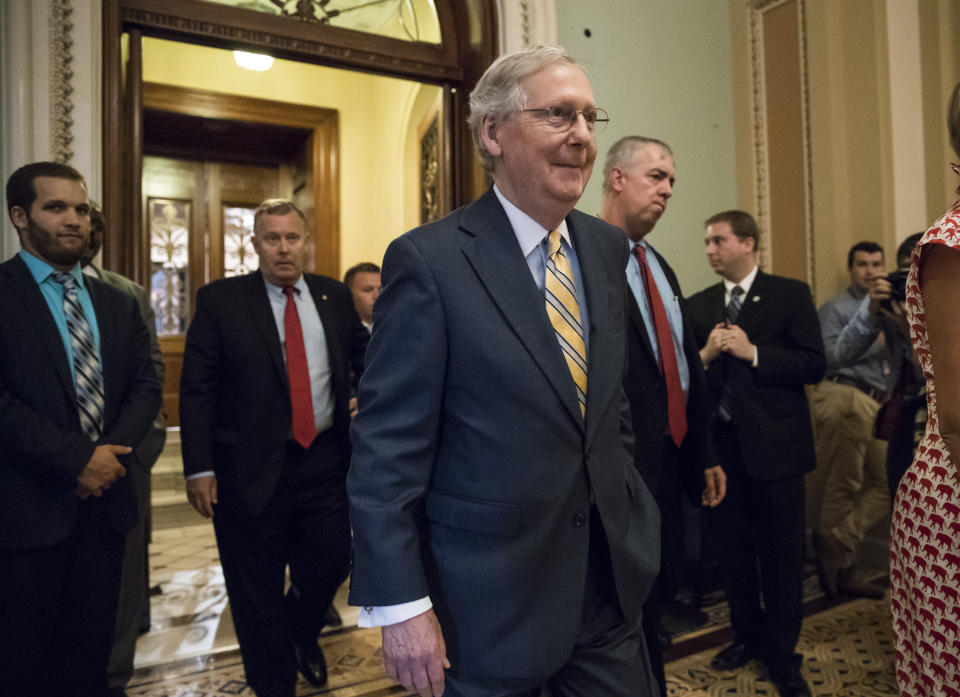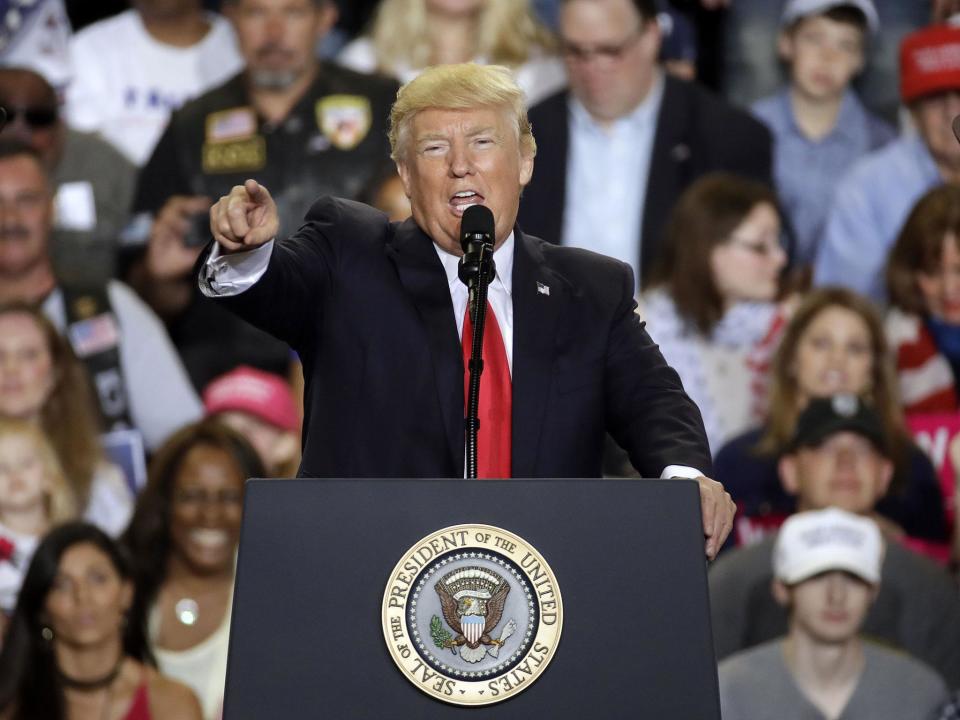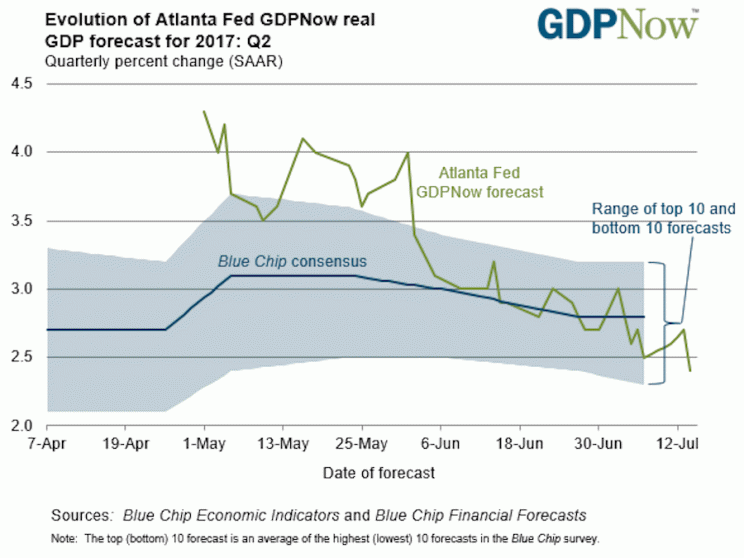Netflix, Goldman Sachs, and IBM—What you need to know in markets this week
After markets jumped to record highs this week, investors will be greeted by the first of three extremely busy weeks of earnings.
In the coming week, 74 of the S&P 500’s members will report, and by the end of the first week of August, 424 results for the second quarter will be in.
On Friday, financial stocks were in focus as JPMorgan (JPM), Citi (C), and Wells Fargo (WFC) all reported earnings that beat expectations, while only Wells missed on the top line.
The biggest story to emerge from the beginning of earnings season, however, wasn’t related to any one company’s performance but comments from JPMorgan CEO Jamie Dimon, who spoke out about his views on the current American business climate, saying, “We have the most—one of the most bureaucratic, confusing, litigious societies in the planet—it’s almost an embarrassment being an American citizen traveling around the world and listening to the stupid s*** we have to deal with in this country.”
In the coming week, notable earnings include Netflix (NFLX), Bank of America (BAC), IBM (IBM), Johnson & Johnson (JNJ), Goldman Sachs (GS), Morgan Stanley (MS), Microsoft (MSFT) and eBay (EBAY).

On the economic data side, the calendar this week will be fairly quiet after last week saw new readings on consumer confidence disappoint, while inflation readings and retail sales also missed expectations.
Economic calendar
Monday: Empire State Manufacturing, July (15 expected; 19.8 previously)
Tuesday: Import price index, June (-0.2% expected; -0.3% previously); Homebuilder sentiment, July (67 expected; 67 previously)
Wednesday: Housing starts, June (+6.2% expected; -5.5% previously); building permits, June (+2.7% expected; -4.9% previously)
Thursday: Initial jobless claims (245,000 expected; 247,000 previously); Philly Fed manufacturing, July (23.4 expected; 27.6 previously); leading index of economic indicators, June (+0.4% expected; +0.3% previously)
Friday: No major economic data will be released.
Washington, D.C. realities are hitting American consumers
Nothing is happening in Washington, D.C.
Policy-wise, at least.
Last week, Senate Republicans released another draft text of their health care plan to repeal and replace Obamacare. But before the draft was even released, Republican Senators like Rand Paul (R-Ky.) were criticizing the bill.
President Donald Trump, for his part, said in an interview with CBN News published on Wednesday that Senate Majority Leader Mitch McConnell (R-Ky.), “Has to pull it off” in reference to getting a bill passed.

Meanwhile, each day this week saw new developments in the ongoing saga about what the Trump campaign did and did not learn in a meeting with Russian officials, confirmed by Donald Trump, Jr. earlier this week.
Taken together, this all points to a legislative process in Washington, D.C. that is going nowhere fast. As we’ve highlighted numerous times, looking at the stock market and the specific ways that stock investors bet on so-called “Trump trades” after the election reveals that investors long ago pared bets on big changes out of Washington, D.C.
Now, U.S. consumers, whose spending accounts for about 70% of GDP, are starting to get less bullish on the future of their economic prospects. And some economists are drawing a line from this lowered optimism across the country to the inaction in the capital.
In the latest report on consumer sentiment from the University of Michigan released Friday, expectations for the economy from consumers continued to slide and are now at their lowest level since October 2016.
“The data indicate that hopes for a prolonged period of 3% GDP growth sparked by Trump’s victory have largely vanished, aside from a temporary snap-back expected in the second quarter,” said Richard Curtin, chief economist for the survey.
“The weakness in the Expectations Index in early July was concentrated among Republicans (falling to 108.9 from June’s 116.0 and February’s 120.1),” Curtin added. “Democrats continue to hold much less favorable expectations, although the Expectations Index among Democrats has markedly improved (to 63.2 from June’s 62.0 in June and 55.5 in February).”

Michael Pearce, an economist at Capital Economics, said Friday that the drop in the headline index, which slipped from 95.1 to 93.1, is “puzzling,” given the stock market records, strong labor markets, and low gas prices.
The only remaining culprit for the drop in confidence among consumers, then, remains the negative news and inaction from Washington, D.C.
The story isn’t all bad though, with Pearce writing that, “The big picture is that consumer confidence is still at historically high level and is still consistent on past form with consumption growth rising to 4% in the second half of this year.”
As of Friday, the Atlanta Fed’s GDPNow tracker forecasts that second quarter growth hit an annualized rate of 2.4%, an improvement over the first quarter but below the over 3.5% growth initially seen by this series.

And with the Trump administration last week unveiling a new name for its economic initiatives—MAGAnomics—which among other things pledged a return to 3% growth, it seems that for the economy to really take off lawmakers are going to have to win over consumers.
Or at least reassure them.
And to do that, they’ll have to actually get something done.
—
Myles Udland is a writer at Yahoo Finance. Follow him on Twitter @MylesUdland
Read more from Myles here:

